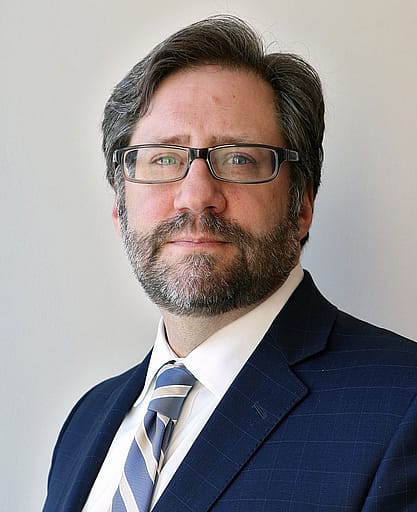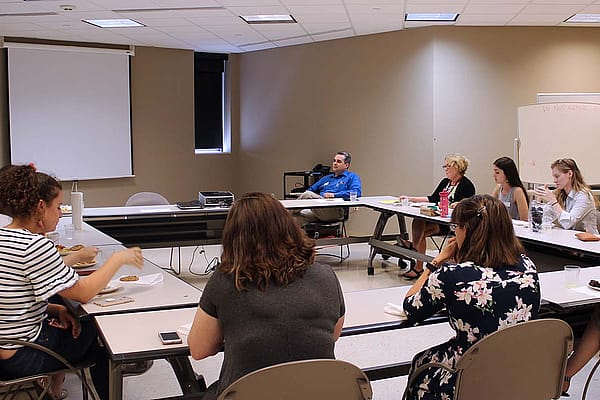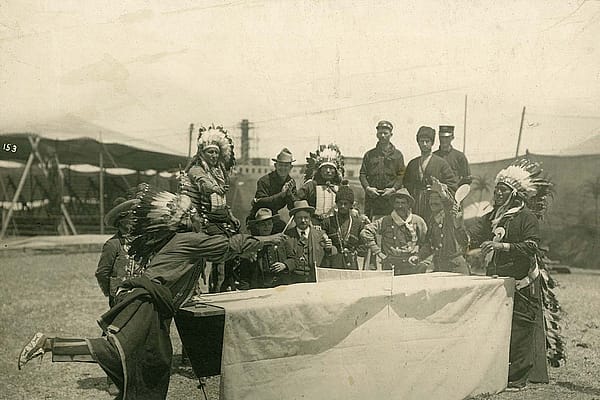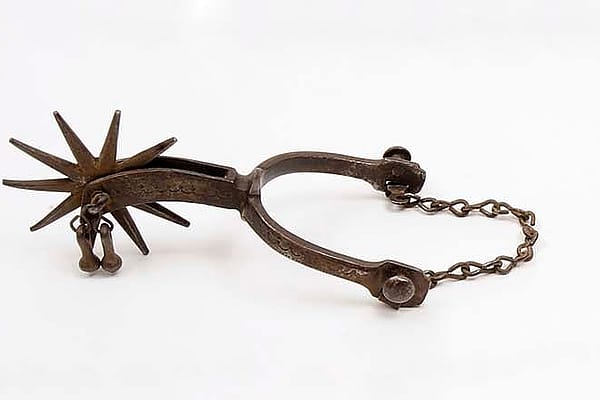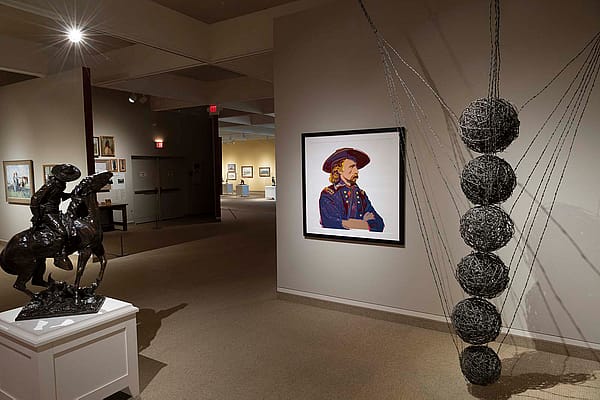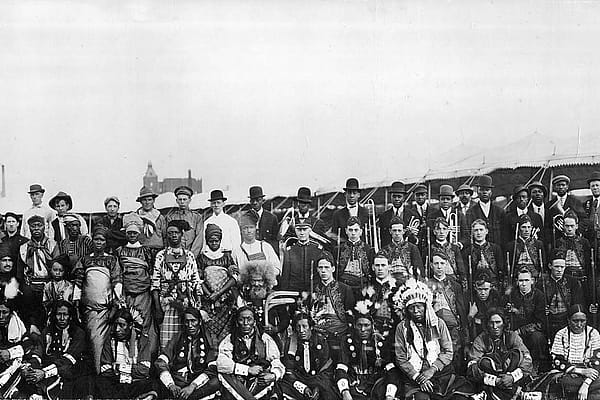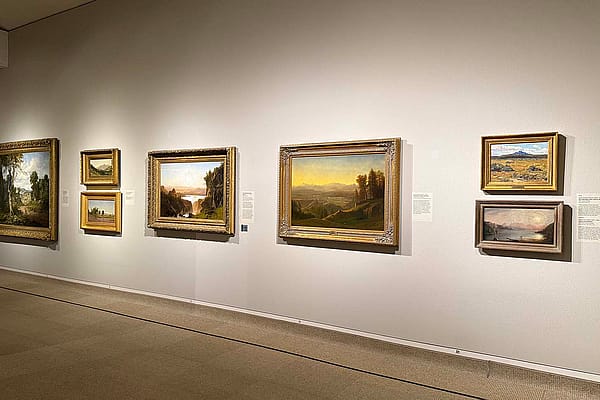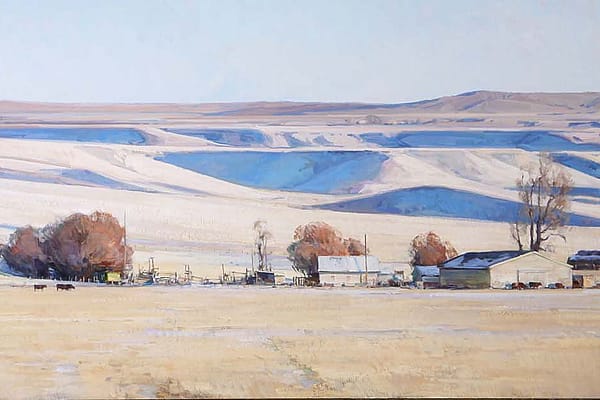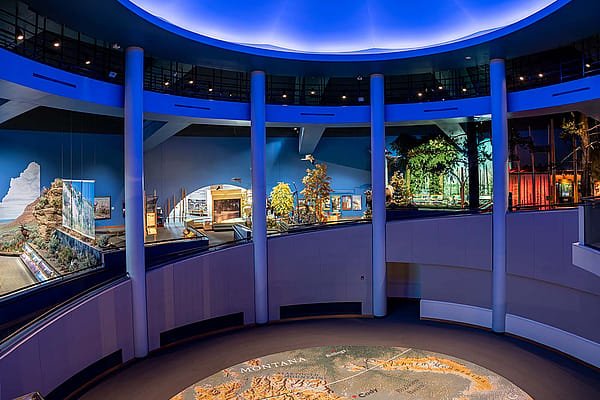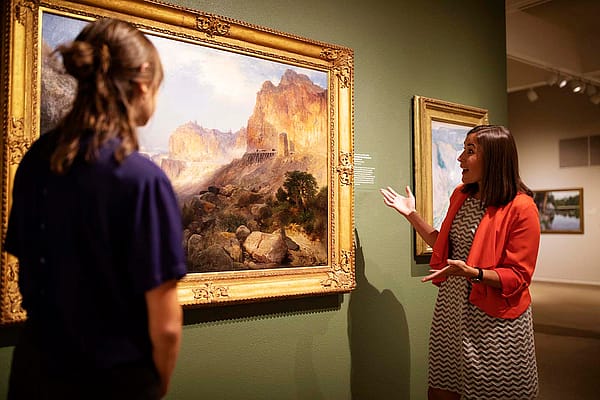NEH Chairman Jon Parrish Peede to speak at Buffalo Bill Center of the West September 13
Wyoming Humanities, along with the Buffalo Bill Center of the West and the Wyoming Arts Council, welcome Jon Parrish Peede, Chairman of the National Endowment for the Humanities (NEH) to Cody and the Bighorn Basin on Thursday, September 13. As part of his visit, Chairman Peede presents a free public talk, Public Humanities and Arts: Strengthening our Economy and our Democracy, at 5 p.m. that evening in the Center of the West‘s Coe Auditorium. A public reception with Chairman Peede follows in the Center’s Braun Garden at 6 p.m.
“The humanities are most relevant when they are in the public sphere,” Peede said in an interview for the summer 2018 issue of Humanities magazine. “If the humanities are to live only within the campus walls, then that’s an impoverished humanities, and not very democratic…My great worry is that without the humanities endowment, without national organizations committed to funding this work, culture would reside exclusively in massive institutions in a few wealthy coastal cities. That is not a sufficient vision of American culture.”
Nominated by President Trump, Peede became the eleventh NEH chairman on May 3 of this year. “Most of the [previous] chairmen were scholars,” Peede explains. “I am an editor. I have taught college and published about a hundred works and have edited my own two books, but I have spent most of my career promoting other people’s work.”
From 2007 to 2011, Peede oversaw the National Endowment for the Arts (NEA) funding of literary organizations and fellowships to creative writers and translators. During his NEA tenure, he served as counselor to NEA Chairman Dana Gioia and directed the NEA Operation Homecoming: Writing the Wartime Experience program and the NEA Big Read program. His varied humanities experiences also include directing the communications department at Millsaps College where he was also founding editor of Millsaps Magazine; working as editor at Mercer University Press with a focus on the humanities; and leading writing workshops for U.S. troops in Afghanistan, Bahrain, England, Italy, Kyrgyzstan, the Persian Gulf, and on domestic bases.
After his NEA career, Peede became publisher of the literary magazine Virginia Quarterly Review (VQR) at the University of Virginia. While at the magazine, his efforts produced an annual online reach increase of 400,000 readers and paid readership expanded to 51 countries. VQR also acquired work from seven Pulitzer Prize winners and interviews with two Nobel laureates.
Peede holds a bachelor’s degree in English from Vanderbilt University, and a master’s degree in Southern Studies from the University of Mississippi. He is the coeditor of Inside the Church of Flannery O’Connor: Sacrament, Sacramental, and the Sacred in Her Fiction (Mercer, 2007) and editor of a bilingual anthology of contemporary American fiction (Lo que cuenta el vecino: cuentos contemporáneos de los Estados Unidos [UNUM: Mexico City, 2008].)
“I am the only chairman born after the Truman administration,” Peede adds. “The Internet has existed my entire professional career. So, for example, the digital humanities are just the humanities to me. I am most likely the transition leader into a truly twenty-first century agency.”
A Southerner by birth, Peede currently lives with his wife and daughter on Short Hill Mountain in northern Virginia.
Wyoming Humanities is the state’s affiliate of the National Endowment for the Humanities and one of 56 state and territorial humanities councils. Known as “ThinkWY,” the organization has served Wyoming since 1970 and is charged with strengthening Wyoming’s democracy through the humanities. For additional information, visit thinkwy.org.
Read more about the NEH Chairman here. For more information, contact Lee Haines at [email protected] or 307-578-4033, or Shannon Smith at [email protected].
Since 1917, the award-winning Buffalo Bill Center of the West in Cody, Wyoming, has devoted itself to sharing the story of the authentic American West and as one of the state’s leading cultural institutions, has received significant funding through grants from the National Endowment for the Humanities. The Center is an affiliate of the Smithsonian Institution. For additional information, visit centerofthewest.org or the Center’s Facebook page.
Written By
Nancy McClure
Nancy now does Grants & Foundations Relations for the Center of the West's Development Department, but was formerly the Content Producer for the Center's Public Relations Department, where her work included writing and updating website content, publicizing events, copy editing, working with images, and producing the e-newsletter Western Wire. Her current job is seeking and applying for funding from government grants and private foundations. In her spare time, Nancy enjoys photography, reading, flower gardening, and playing the flute.
